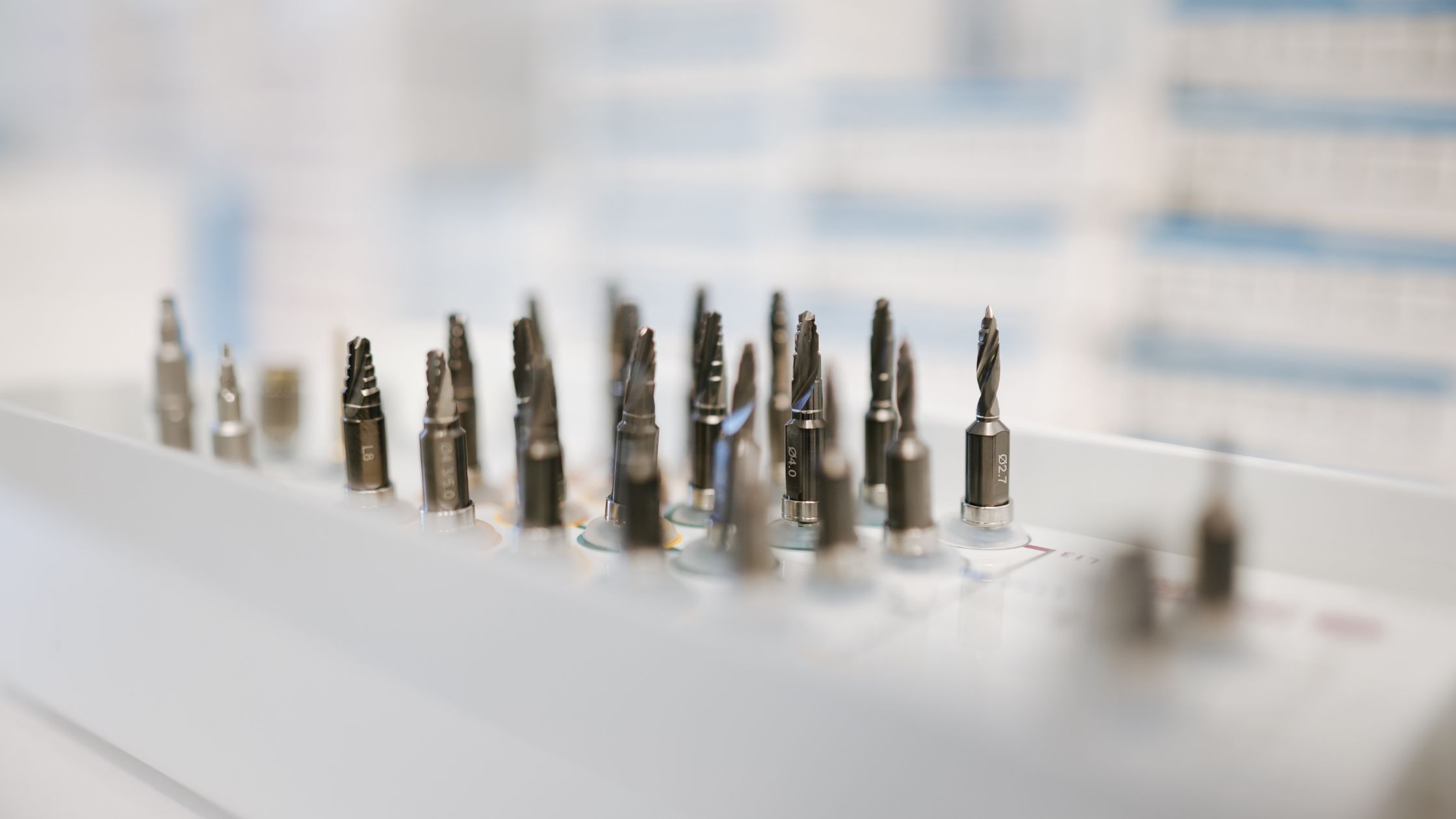Dental implants are a great investment in your oral health, offering a long-term solution to restore your bite and smile. With proper care and professional placement, dental implants can last decades or even a lifetime. In fact, studies suggest implants have a 10-year survival rate of 96.4%.
While it’s rare, dental implants can fail from time to come and that risk generally increases with age. If you think something might be wrong with your implants, don’t panic. Failed implants can be saved, and early intervention is so important. We’ll review some common reasons why implants fail, what to look out for, and what you can do to prevent it.
The Most Common Reasons Why Dental Implants Fail
Like with any medical procedure, there is a small chance of long-term complications or failure with implants. While it’s very unlikely, especially in the first 10 years, here are some common reasons why you might experience implant failure:
- Dental Implant Infection – Also known as peri-implantitis, infections can occur around the implant site. This often happens during the healing process and is caused by poor oral hygiene. Peri-implantitis can be prevented by regular brushing and flossing following implant placement.
- Improper Placement – Improper placement by a dental professional is among the most common reasons for failure. This can be avoided by choosing a highly-experienced periodontist with a good reputation.
- Gum Disease – Gum health and implants go hand in hand. Severe periodontitis can cause gums to pull away from the teeth and ultimately loosen the implant. Good oral hygiene and regular dental cleanings can help prevent a gum disease flare-up.
- A Weak Jaw – If your jaw begins to lose density, it might not be strong enough to hold the implant in place. Your periodontist will take steps to ensure your jaw is stable prior to the procedure, but bone loss can happen any time.
- Severe Teeth Grinding – Those who severely grind teeth could risk loosening an implant — especially during the healing stage. If you grind your teeth, ask your provider about a mouthguard.
While some instances of failure are beyond your control, avoiding failed dental implants ultimately comes down to maintaining good oral hygiene and choosing the right provider in most cases.
Failed Dental Implant Treatment: How To Detect And Correct The Problem
If you’re noticing pain or discomfort, bleeding, difficulty chewing, or if the implant feels loose, you might be experiencing a failed dental implant. If this is the case, you’re most likely going to feel frustrated after making such a large investment. And if your implants are failing because of improper placement, you might feel reluctant to return to a dental provider.
However, early detection and intervention are key to reversing the course. In a worst-case scenario, the implant might need to be removed and replaced; however, it’s also important for your provider to dig into the reason why it failed in the first place in order to treat the underlying issue. For example, if a weak jaw is the reason behind the failure, a bone graft might be necessary for replacement. If you’re suffering from peri-implantitis, a cleaning around the site might be the right first step.
Regardless of the cause, the good news is that the problem is entirely solvable, and a good periodontist can help diagnose the issue and put you back on track. If the issue is detected early enough, the implant might be able to be saved without removal and replacement. However, if the implant is loose or there is major bone loss, then removal and replacement might be the only viable option.
Ormond Beach Periodontics Can Help Resolve Your Failed Dental Implants
One of the best things you can do after a failed implant is to find a great periodontist to help you resolve the issue. When it comes to implant complications, Ormond Beach residents can turn to Dr. Beauchamp for professional treatment. Dr. Beauchamp at Ormond Beach Perio is one of Central Florida’s very best implant periodontists. For implant revision surgery, Florida residents trust Ormond Beach Perio.
Dr. Beauchamp has received extensive training in dental implants, bone grafting, gum disease treatment, and more. His work on dental implants has even been published in Implant Dentistry. When evaluating a failed implant, Dr Beauchamp will do a thorough evaluation to determine if bone grafting, gum cleaning, bite adjusting, or another procedure is necessary before removing and replacing the failed implant.
Failed dental implants can cause a mix of frustration, disappointment, and anxiety. However, a good periodontist is more than capable of providing failed implant treatment. Schedule your consultation with Dr. Beauchamp today.
